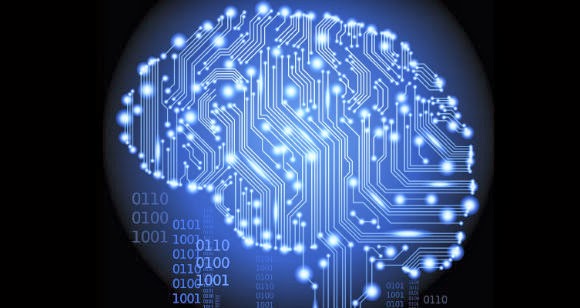Understanding
the human brain is one of the greatest challenges facing 21st century science.
If we can rise to the challenge, we can gain profound insights into what makes
us human, develop new treatments for brain disease and build revolutionary new
computing technologies. Today, for the first time, modern information and
communications technology (ICT) has brought these goals within sight. Today,
the convergence between biology and ICT has reached a point at which it can
turn the goal of understanding the human brain into a reality. It is this
realization that motivates the Human
Brain Project (HBP) ; an EU Flagship initiative in which over 80 partners
will work together to realize a new "ICT-accelerated" vision for
brain research and its applications.
In October
2013 the Human Brain Project's official kick-off was carried out during the HBP
Summit held in Laussane. In addition to the meeting of scientists from the
HBP's 80+ partner institutions, the programme included the first meeting of the
HBP General Assembly, an international media event, an open-doors poster session
for students, researchers, journalists and members of the general public, and a
special dinner to celebrate the start of the HBP's 10-year enterprise.
The Human
Brain Project is a ten-year project, consisting of a thirty-month ramp-up
phase, funded under FP7, with support from a special flagship ERANET, and a
ninety-month operational phase, to be funded under Horizon 2020. The project,
which will have a total budget of over Euro 1 billion, is European-led with a
strong element of international cooperation. The goal of the project is to
build a completely new ICT infrastructure for neuroscience, and for
brain-related research in medicine and computing, catalysing a global
collaborative effort to understand the human brain and its diseases and
ultimately to emulate its computational capabilities.
The proposed infrastructure will consist of six ICT-based research platforms, providing neuroscientists, medical researchers and technology developers with access to highly innovative tools and services that can radically accelerate the pace of their research. These will include a Neuroinformatics Platform, that links to other international initiatives, bringing together data and knowledge from neuroscientists around the world and making it available to the scientific community; a Brain Simulation Platform, that integrates this information in unifying computer models, allowing in silico experiments, impossible in the lab; a High Performance Computing Platform that provides the interactive supercomputing technology neuroscientists need for data-intensive modelling and simulations; a Medical Informatics Platform that federates clinical data from around the world, providing researchers with new mathematical tools to search for biological signatures of disease; a Neuromorphic Computing Platform that makes it possible to translate brain models into a new class of hardware devices and to test their applications; a Neurorobotics Platform, allowing neuroscience and industry researchers to experiment with virtual robots controlled by brain models developed in the project. The platforms are all based on previous pioneering work by the partners and will be available for internal testing within eighteen months of the start of the project. Within thirty months, the platforms will be open for use by the community, receiving continuous upgrades to their capabilities, for the duration of the project.
The HBP
will trigger and drive a global, collaborative effort that uses the platforms
to address fundamental issues in future neuroscience, future medicine and
future computing. A significant and steadily growing proportion of the budget
will be devoted to research by groups outside the original HBP Consortium,
working on themes of their own choosing. The expected end results will include
a new understanding of the brain and its diseases and radically new forms of
ICT, that exploit this knowledge. The social economic and industrial impact is
potentially enormous.
Federating
more than 80 European and international research institutions, the Human Brain
Project is
planned to last ten years (2013-2023). The cost is estimated at 1.19 billion
euros.
The project
will also associate some important North American and Japanese partners. It
willbe coordinated at the Ecole Polytechnique Fédérale de Lausanne (EPFL) in
Switzerland, byneuroscientist Henry Markram with co-directors Karlheinz Meier
of Heidelberg University,
Germany,
and Richard Frackowiak of Centre Hospitalier Universitaire Vaudois (CHUV) and the
University of Lausanne (UNIL).







+logo-w200.png)


No comments:
Post a Comment
Note: Only a member of this blog may post a comment.